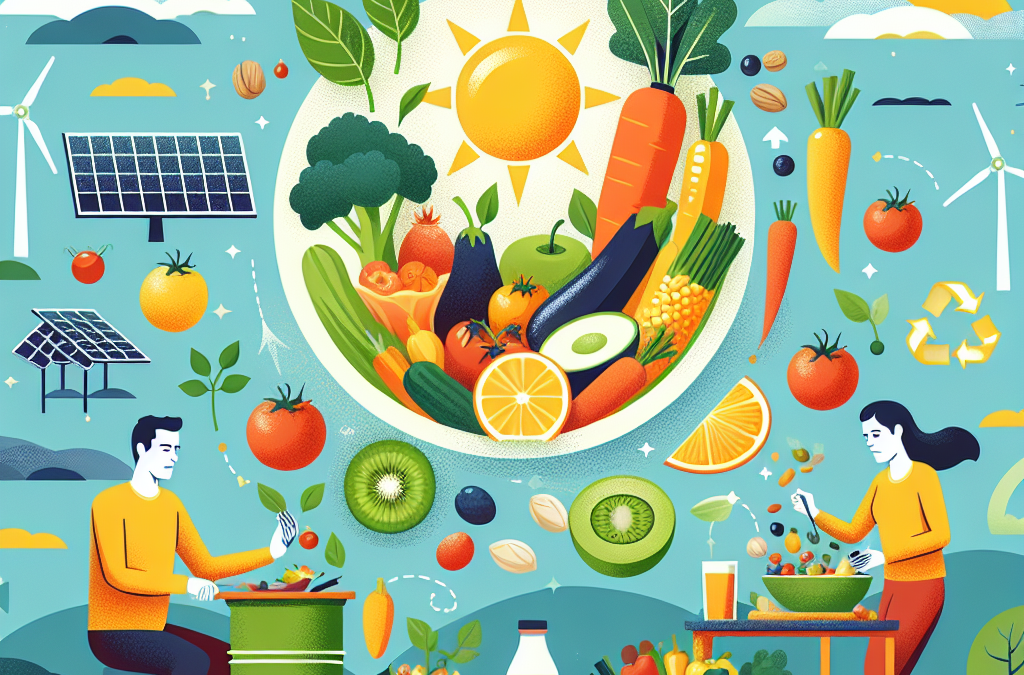Understanding Whole Foods
What Are Whole Foods?
When I first started my journey into sustainable eating, I had to get a grip on what exactly whole foods are. Basically, they’re foods that are minimally processed and free from artificial ingredients. Think fruits, veggies, nuts, seeds, whole grains, and fish. The closer they are to their natural form, the better!
This might seem like a simple concept, but the impact on energy levels is huge. When you consume whole foods, your body gets the complete package of nutrients it needs to function efficiently. This means no more crashing in the afternoon; instead, you have consistent energy throughout the day.
Plus, choosing whole foods not only nourishes my body but also aligns with a sustainable lifestyle. It’s like a double whammy—healthy for me, and great for the planet!
Benefits of Whole Foods for Energy
Sustained Energy Levels
One of the biggest perks of eating whole foods is the sustained energy levels they provide. Unlike processed snacks that spike my blood sugar and lead to that dreaded crash, whole foods release energy more evenly. This means that when I reach for an apple or whole-grain toast, I feel good for a longer stretch.
Every bite I take is packed with fiber and complex carbs, which gradually break down in my body. Essentially, it’s the power-up I need without the rollercoaster effect. It keeps me alert during those long work sessions or while chasing after my kiddos.
So, if you’re looking to boost your energy sustainably, ditch the junk food and embrace whole foods. Your body will thank you with more endurance and vigor!
Incorporating Whole Foods into Your Diet
Shop Smart
When I’m out shopping, I always focus on the perimeter of the grocery store. This is typically where the fresh produce, meats, and dairy are located. By avoiding the inner aisles where most processed foods lurk, I find it easier to gather a cart full of whole foods.
Another tip is to read labels carefully. Even seemingly healthy snacks can be full of hidden sugars and preservatives. I’ve learned to look for short ingredient lists—the fewer ingredients, the better.
When I prepare my shopping list, I try to include a colorful variety of fruits and vegetables. Eating the rainbow not only looks appealing on my plate but also ensures I’m getting a wide range of nutrients.
Meal Prep for Energy Efficiency
Planning Ahead
I cannot express how much meal prepping has transformed my life. I usually dedicate a few hours on the weekend to prepare meals for the week ahead. This helps me avoid those last-minute takeout temptations when I’m too tired to cook.
Get an Amazing Discount on the Best Certified Organic Whole Food Supplement!
By cooking in bulk, I ensure I always have healthy meals on hand. I often make large batches of soups, grain bowls, or veggie stir-fries that I can easily heat up on busy nights. This not only saves time but also keeps my energy up since I’m fueling my body with good stuff.
And let me tell you, the satisfaction of opening the fridge and seeing a week’s worth of colorful, healthy meals is unmatched. It keeps me motivated to eat right and feel great!
Staying Hydrated Alongside Whole Foods
The Importance of Water
I’ve learned that staying hydrated is just as important as eating right. Water plays a critical role in maintaining energy levels and supporting all bodily functions. I aim to drink plenty of water throughout the day, particularly when I’m enjoying whole foods.
Sometimes I get so caught up in the food that I forget to sip on H2O. I find that filling up a large water bottle and keeping it by my side helps remind me to drink regularly. Adding slices of lemon or cucumber is a nice touch that keeps it interesting!
Getting the balance of whole foods and hydration right has made a noticeable difference in my energy levels. It’s all about creating healthy habits that complement each other.
FAQs
1. What are whole foods?
Whole foods are natural foods that are minimally processed and do not contain artificial ingredients. This includes fruits, vegetables, whole grains, nuts, and lean proteins.
2. How do whole foods affect energy levels?
Whole foods provide sustained energy by releasing nutrients more slowly into the bloodstream compared to processed foods, which can cause spikes and crashes in blood sugar.
3. What are some tips for incorporating more whole foods into my diet?
Start by shopping around the perimeter of the grocery store, reading labels carefully, and planning your meals ahead of time to avoid processed options.
4. Why is meal prepping important?
Meal prepping saves time and keeps you focused on healthy eating. It ensures you have quick access to nutritious meals that align with your energy needs.
5. How important is hydration while consuming whole foods?
Hydration is crucial for maintaining energy levels and supporting overall health. Drinking enough water helps in the digestion and absorption of nutrients from whole foods.





